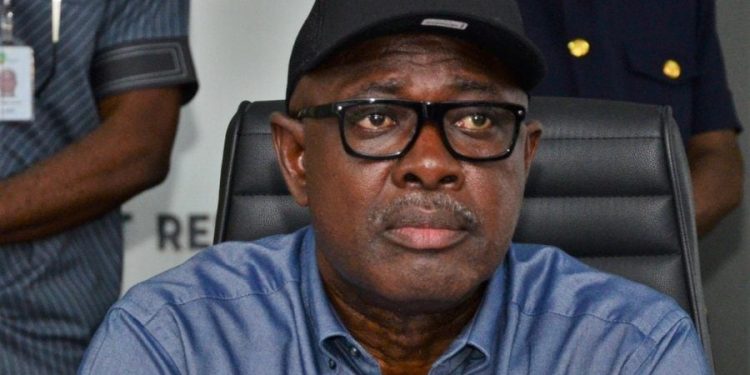The Minister of State for Petroleum Resources (Oil), Senator Heineken Lokpobiri, has disclosed that Nigeria will push for a higher oil production quota at the upcoming Organisation of Petroleum Exporting Countries (OPEC) meeting scheduled for November.
Lokpobiri made the disclosure on Tuesday in Abuja during an interview with the media team of the Nigerian Upstream Petroleum Regulatory Commission (NUPRC), where he reviewed Nigeria’s oil sector performance four years after the enactment of the Petroleum Industry Act (PIA) and the establishment of the Commission.
The minister stated that Nigeria’s current OPEC quota of about 1.5 million barrels per day (bpd) no longer reflects the nation’s true production capacity. He said the country would seek an upward review to at least two million barrels per day.
“The OPEC quota is subject to periodic review, and by November, when we attend the annual meeting, we will certainly be making a case for a higher quota for Nigeria,” Lokpobiri said. “There’s no better time than now for us to make a strong case for Nigeria’s quota to be reviewed to two million and above.”
Lokpobiri explained that Nigeria’s production has steadily improved, with output now around 1.7 million barrels daily, including condensates, and that the country has the capacity to produce over two million barrels per day.
He added that condensates — lighter, high-value crude not covered by OPEC limits — give Nigeria flexibility to expand production without breaching its quota.
“Condensate is not counted in OPEC production, yet it sells at a higher price. If we do 1.5 million barrels of crude and one million barrels of condensate, we are still within the rules,” he said.
The minister attributed the rebound in production to improved security, reduced oil theft, and better pipeline integrity in the Niger Delta.
“Before now, companies were scared to produce because crude pumped into pipelines hardly got to the terminal. Today, if you put in crude, you get 100 per cent at the export point,” he said.
He noted that Nigeria’s rig count — a key measure of upstream activity — has risen sharply from about 14 to nearly 50, reflecting renewed investor confidence and increased exploration.
Lokpobiri also hailed the divestment of assets by oil majors such as Shell, TotalEnergies, and ExxonMobil, describing it as an opportunity for indigenous producers to take the lead in sustaining national output.
“Our indigenous producers are doing excellently. Renaissance has increased production by over 60,000 barrels a day since taking over Shell’s assets, while Seplat has added around 40,000 barrels from the ExxonMobil portfolio,” he noted.
He praised the NUPRC, led by Engr. Gbenga Komolafe, for restoring stability and transparency to the upstream sector through the implementation of the PIA.
Lokpobiri also credited President Bola Ahmed Tinubu’s executive orders for lowering production costs and improving competitiveness in Nigeria’s oil sector.
“Our cost of production is higher than the global average, but we are bringing it down. The executive orders have helped us make the sector more competitive,” he said.
On Africa’s role in the global energy transition, Lokpobiri argued that the continent must define its own path to industrialisation and energy access, noting that Africa contributes less than three per cent of global emissions.
“We cannot industrialise without reliable power. Energy transition means different things to different regions. For us, it means first ensuring energy access before talking about transition,” he explained.
Lokpobiri affirmed that Nigeria’s goal of achieving 2.06 million barrels per day by 2025 is realistic, supported by new infrastructure, investor confidence, and policy consistency.















